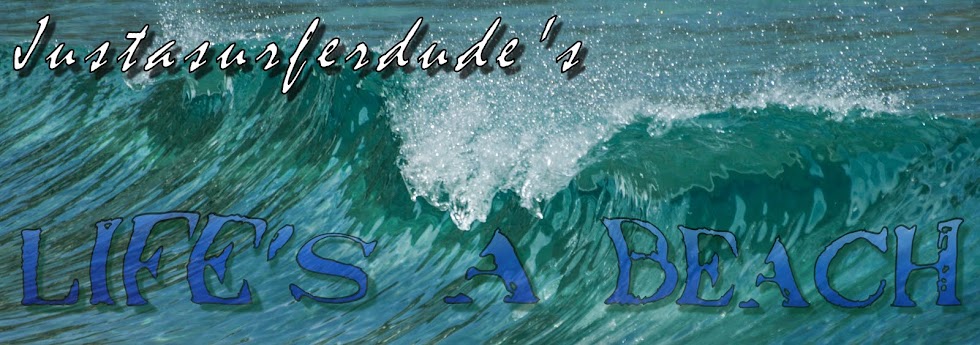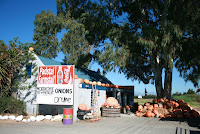Last year I read an interesting article in the September 2010 issue of Popular Mechanics that was written by Glen Reynolds who teaches law at the University of Tennessee. In the article called "Photo Phobia" he writes about officials wanting to arrest people for taking pictures at public places and not always knowing that taking photographs are far from being a threat to national security. He says that terrorist activities are not planned with photos taken of the targets in advance. He also mentions that photos taken by tourists sometimes provide for more clues after the attack than what the local security cameras usually do and that taking photographs by the public in general is not such a bad idea after all and should rater be encouraged.
| The natives in Gabon before they saw my camera and got restless |
I have always been very cautious when taking pictures when I travel, especially in Africa. For some reason people from African countries do not like to be photographed and will be very quick to move away or tell you straight to stop taking pictures of them. In Congo for instance a local once told me that Europeans come and take pictures and then take it back to show other people in what a poor state these countries and its citizens are. Or that is what they believe. In Cameroon we were stopped by a police official that appeared from out of the sky when one of the passengers took a picture of a ramshackled bridge. The police officer claimed that taking pictures of "governmental structures" were forbidden and even after the picture was deleted he still wanted either the camera or whatever cash we had on us. Obviously state security was not his major concern, rather what he could extort from us. After forking out about 60 USD we had our camera back but without ANY photos left on the memory stick after we've deleted every single picture to convince him that there was no need to let go of our camera or to be fined. On a beach in Gabon I once saw men pulling a fishing net from the water. They were working with such good timing and precision and with the beautiful backdrop I thought it would make a very nice scene for some good pictures. When they saw my camera it was like the sign for them to drop the net with the same precision they were pulling the net and attack me. I managed to get one picture before they all started shouting at me to put my camera away. I first thought that what they were doing might be illegal and that they didn't want me to have evidence, but my driver who is also a local, told me that was not the case. They just don't like to be photographed. Since then for me taking pictures in any African country accept South Africa was done with a lot of secrecy and caution.
Two days ago a passed a pumpkin stall just outside Worcester and took a picture of the pumpkins outside the stall. Only later I saw that they wanted a "donation" for taking pictures and I was wondering what gives them the right to ask for a donation? Why did I immediately feel as if they were infringing on my right to take pictures where it is not prohibited by law to do so? Are they just greedy or do they have a right to ask money for taking pictures of something you can see without having to pay for it? According to Glenn Reynolds the general rule is that "if something is in a public place, you are entitled to photograph it". All I know is that this little stall with all its pumpkins has just lost its appeal and consequently another customer. I will never stop there again or take pictures of their pumpkins, I can promise you that.
Since I started my blog I realized that showing some pictures make the content of the blog much easier to visualize and nicer to read. I have always tried to put at least one relevant picture with every post, and sometimes when I don't have a picture I even go as far as not writing anything. But last week I had a very unpleasant incident here in South Africa when I took a pictures at the Oliver Tambo International Airport in Johannesburg. I was standing in the queue to check in at the Premium Class desk, but two of the SAA employees were sitting behind their counters and texting messages in stead of looking up to assist passengers. After getting a bit annoyed for having to wait I took a picture and with the flash going off one of the SAA employees jumped up and nearly grabbed me by the throat for taking a picture of her. I think she was more concerned about the fact that I have proof of what she was doing than the pictures being of her, but in the end I nearly missed my flight because she not only called security, but eventually had two police officers with her who wanted to arrest me for taking a picture. Anyway, to avoid missing my flight I eventually deleted the picture. Unfortunately I did not save it in another folder otherwise you could've been the judge whether there were any infringement on her privacy or not. From the picture you could not even see her face. I merely took a picture of a SAA employee who was not doing her work and made her company appear very unprofessional in the eyes of many travelers.
So my question now is, is taking pictures in South Africa also becoming an issue? Every person you meet nowadays have some sort of camera with him or her, will it ever be fully stopped? Is there any legislation in South Africa that prevents anyone from taking pictures, or in other countries for that matter? I will just have to be more careful I guess, but I cannot blog without pictures and I am not intending on doing that either. I have sent a letter to the SAA. Once I get a reply I will post the letter with all the details of this shocking and demeaning experience and to show what their response is to my picture taking experience at Oliver Tambo International. If there were any signs I probably would not have taken my camera out, so I have created a sign for the SAA that they can use in the meantime. So in the words of Glenn Reynolds all I can say is: "Let's have truce in the war on photography and set our sights on the real bad guys. Who, it seems, don't carry camera anyway."



No comments:
Post a Comment